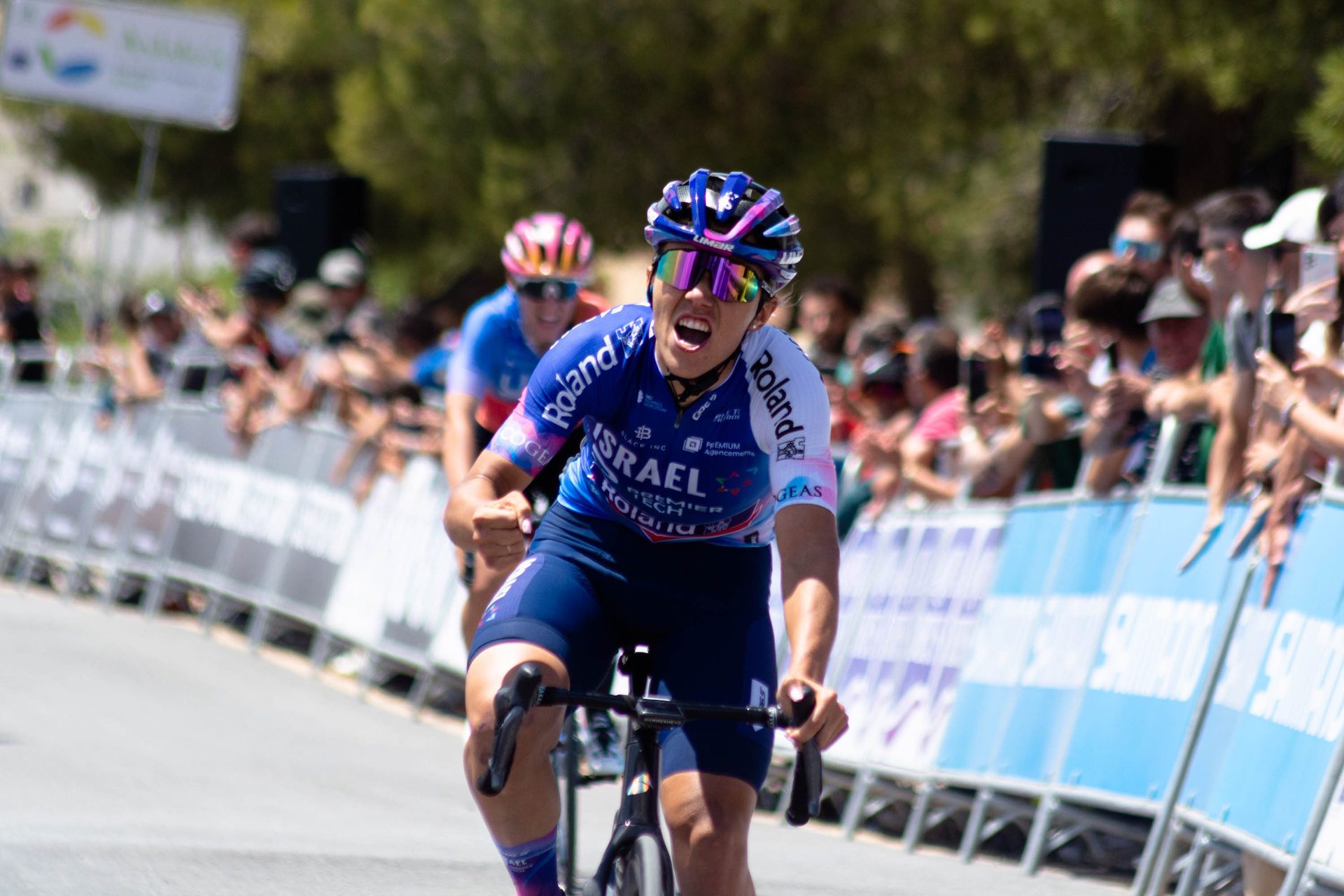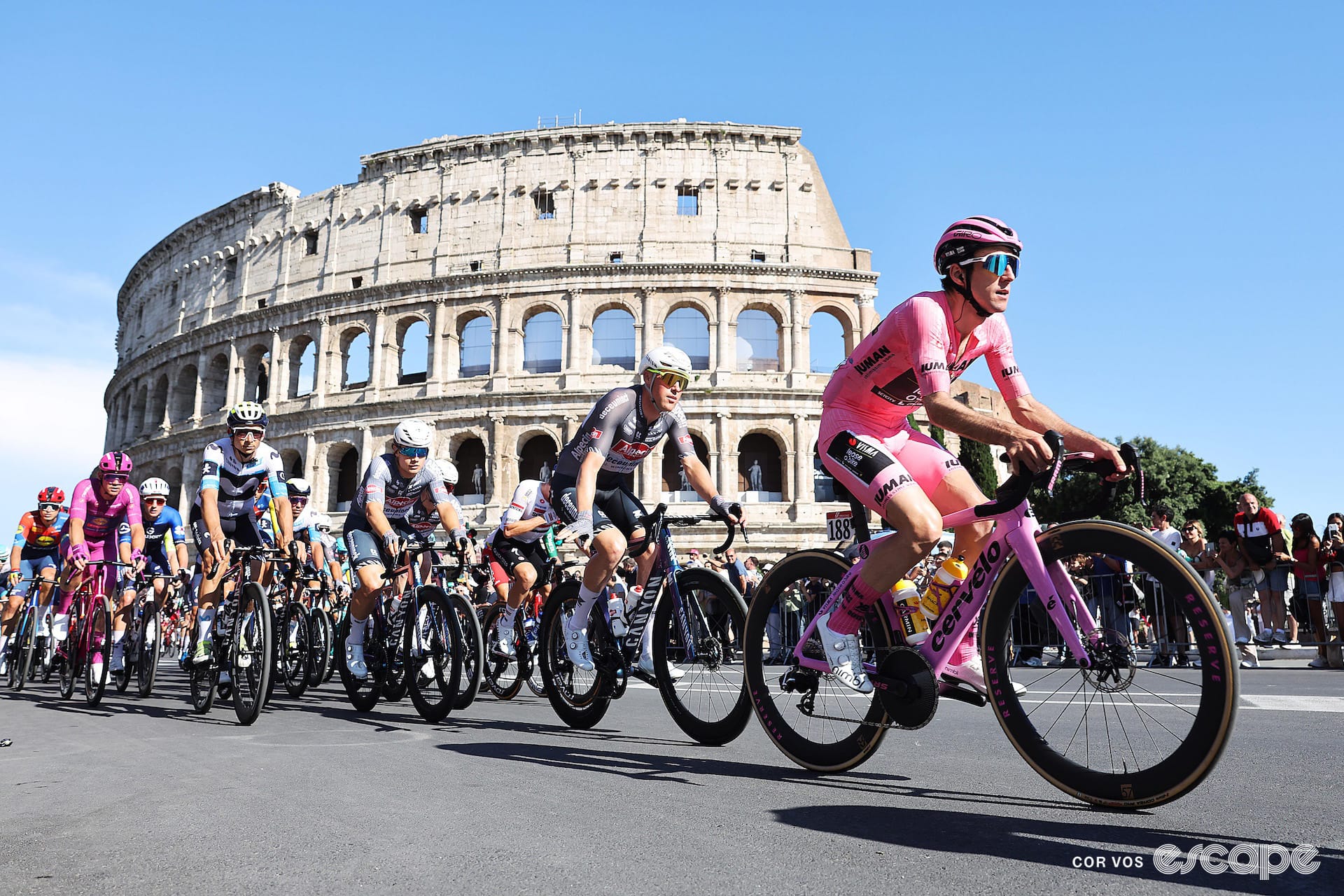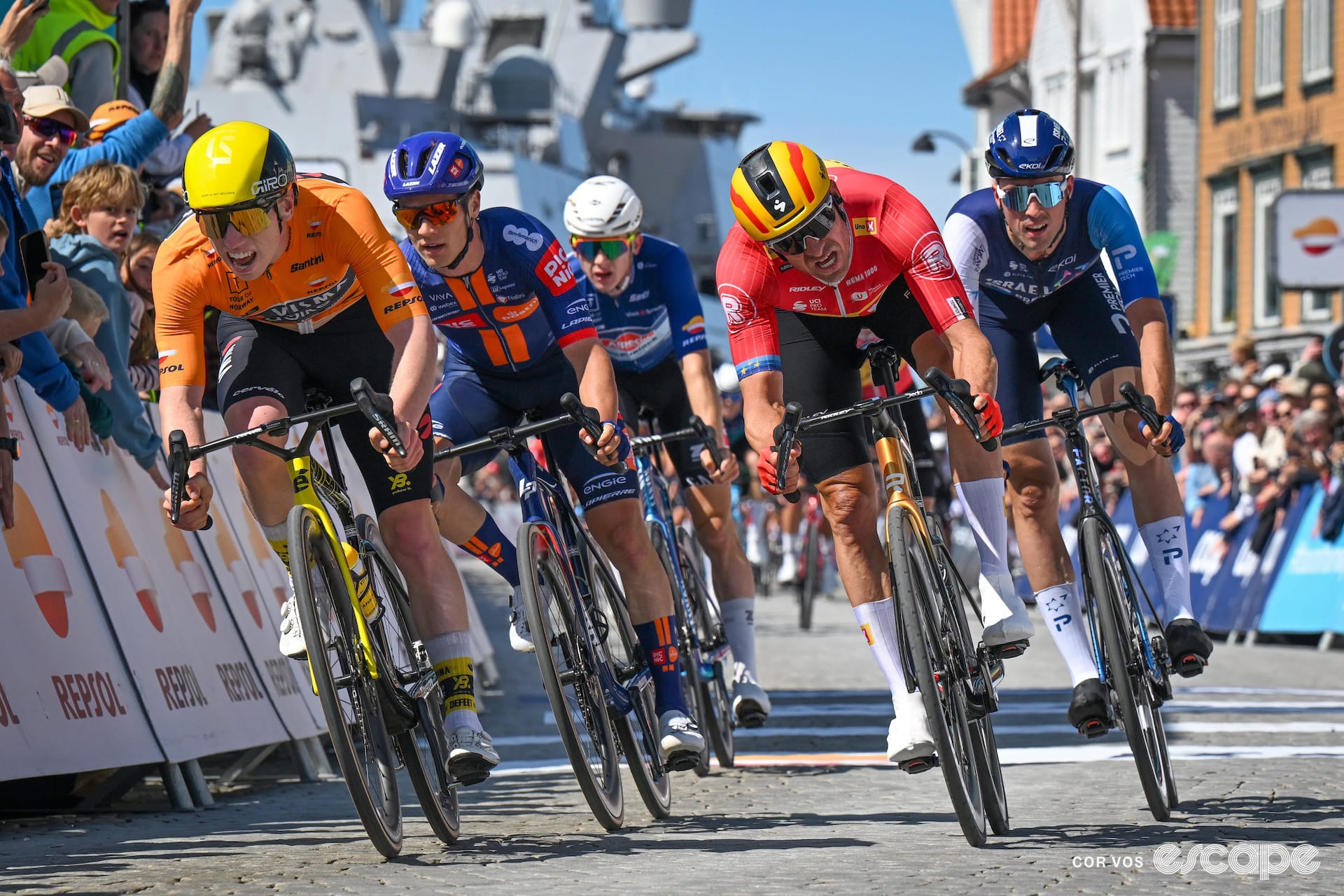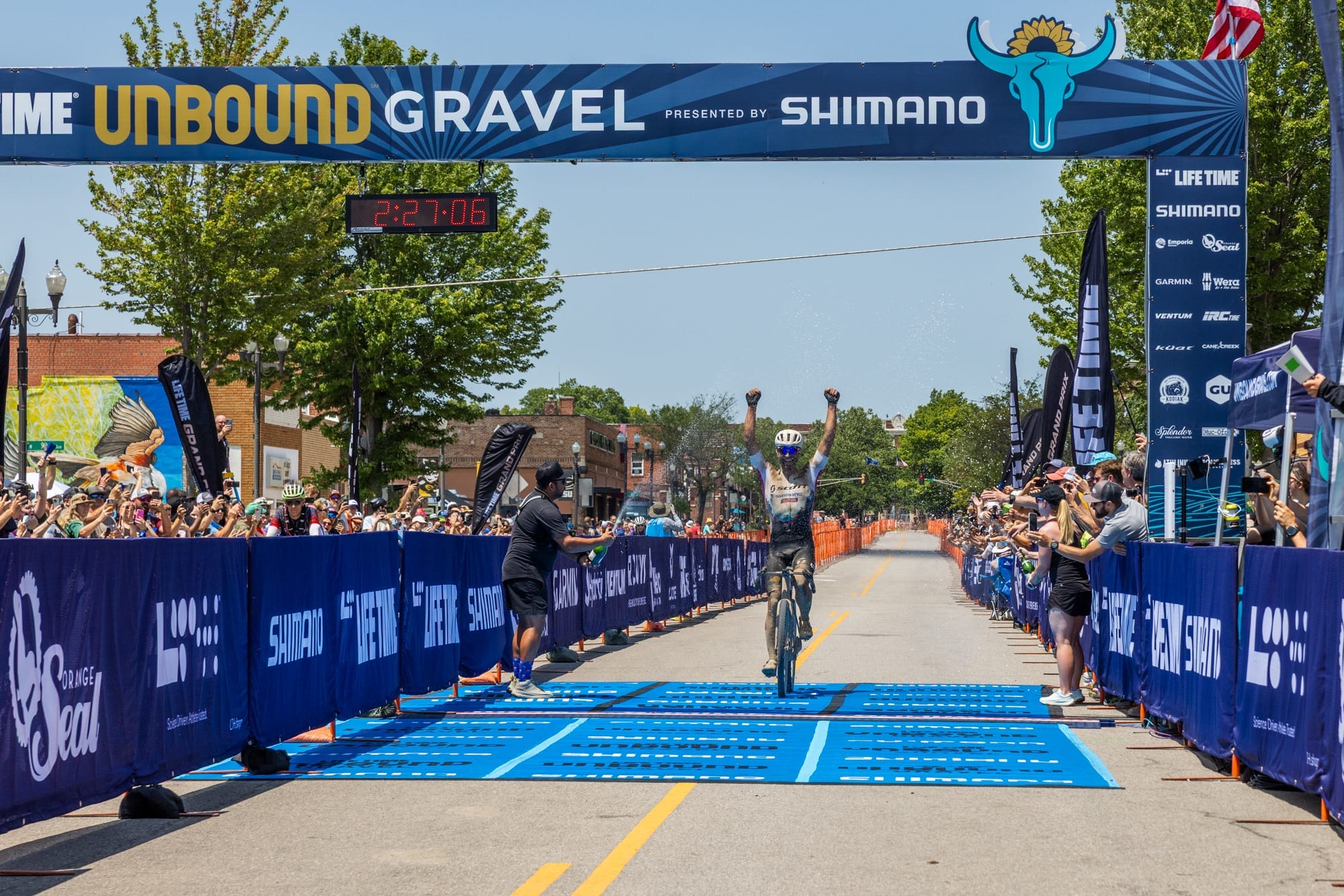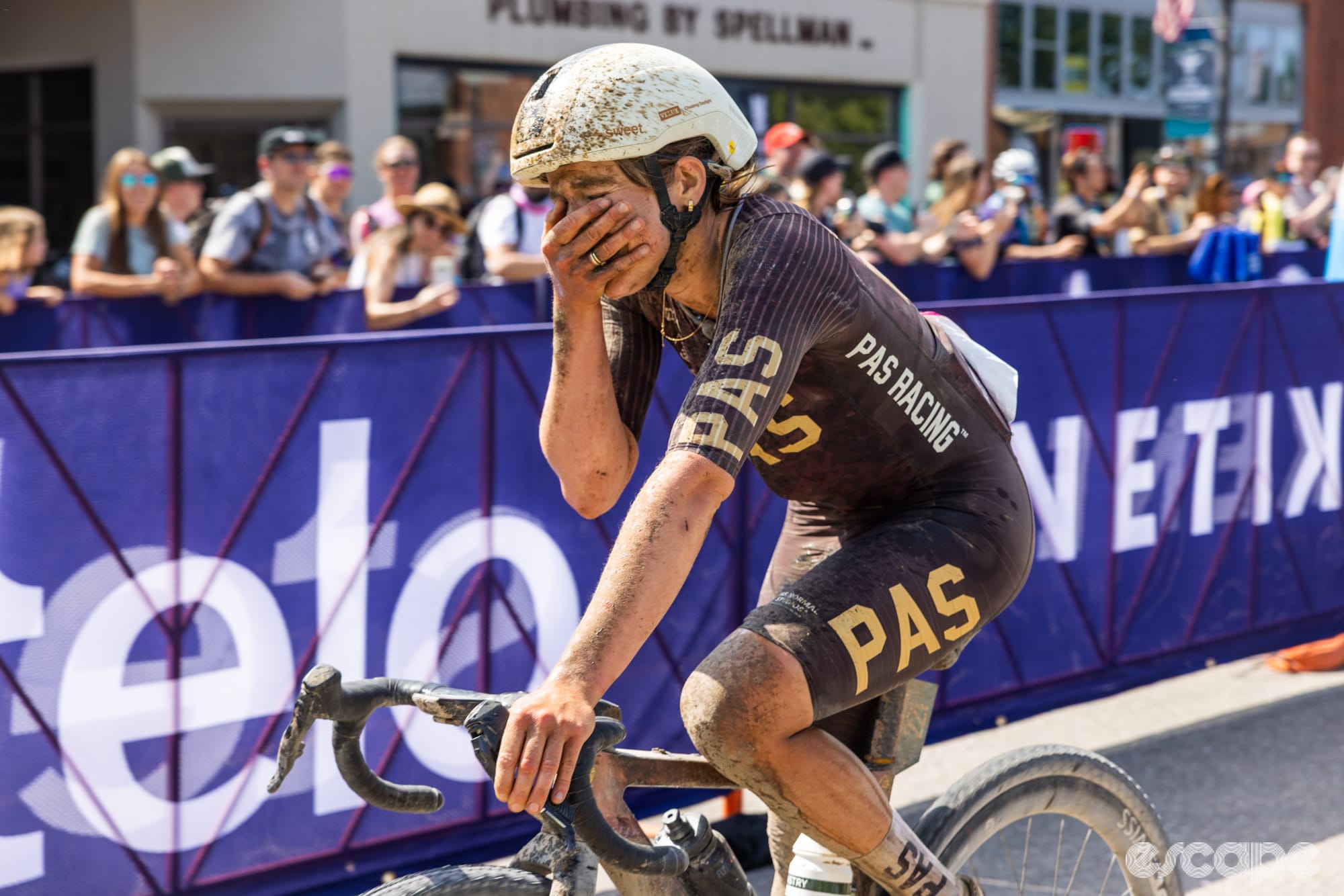Two stages into the Tour de France Femmes avec Zwift and all the attention has been on the big names. Stage 1 winner Lotte Kopecky and her SD Worx team, Liane Lippert and her Movistar leader Annemiek van Vleuten, others with good stage results and GC ambitions.
Barely getting a mention, though, is Israel Premier Tech Roland's Tamara Dronova, top 10 on both of the opening stages and now sitting sixth overall. This lack of attention is something of a trend – over the past few years, the now-29-year-old has amassed a number of strong results and yet media coverage of her in the western world is almost non-existent.
Fourth overall at last year’s WorldTour-level Tour of Scandinavia, two stage wins and third overall at this year’s Ruta del Sol, a whole stack of top-10 results – they’re the sort of achievements that, for a rider so new to road cycling, would normally attract considerably coverage.
But there’s more to it than just sport. While Dronova lives in Turkey with her family, she is originally from Russia, and that fact seems to dissuade the media from telling her story. She’s not terribly surprised.
“I think maybe now it's not good time for me,” she tells Escape Collective in Clermont-Ferrand at the start of stage 2 of the Tour de France Femmes. “I’m a Russian rider – maybe many journalists worry about this.”
Her sports director and compatriot, Sergey Klimov, has a similar impression. He starts by saying that maybe she’s not as front-of-mind because she doesn’t post to social media as often as some others in the peloton.
“Maybe [it’s about] this or maybe about country of origin,” he says, also at the start of stage 2. “Not everyone want to write good [about Russian athletes]. For hype, you need some bad story. If you have a good story you can't have a lot of viewers of your story.”
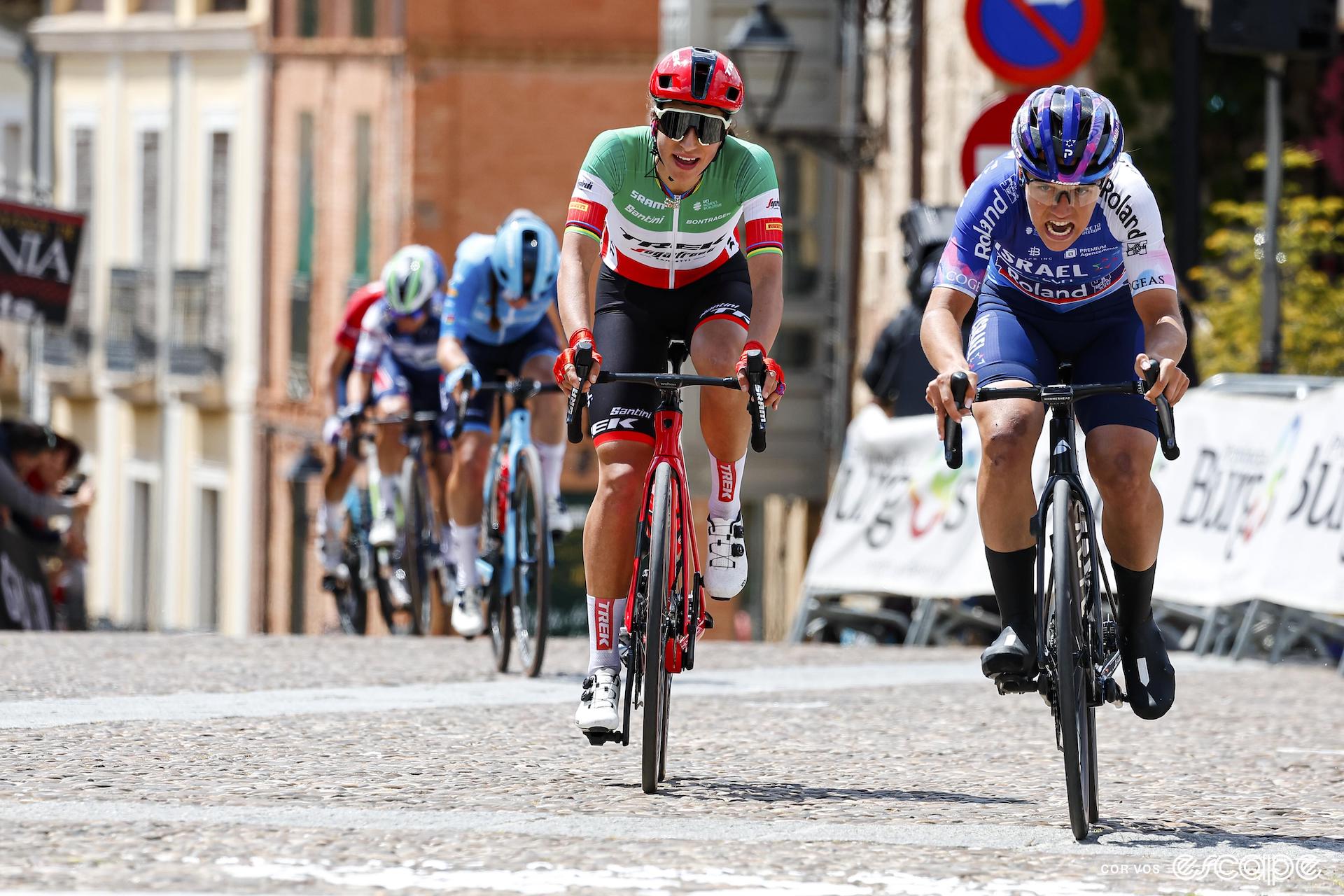
Klimov sees bike racing as being separate to politics. He intimates that we should focus on athletes’ sporting achievements, and divorce those from our feelings about the actions of the nations they belong to. Some will find that easier than others; some will say Russian athletes shouldn’t be in the spotlight, that they shouldn’t even be able to participate in international competition. It’s a deeply complex and emotionally charged issue.
But if we focus purely on Dronova’s sporting story, there is much to talk about.
Dronova comes from a nordic skiing and track racing background, and has multiple Russian and European titles to her name. It was only two years ago that she started racing on the road with any real purpose.
“She started like a sprinter – just 200 meters,” Klimov says with a laugh. “Then she moved to [endurance program] for team pursuit, individual pursuit, for madison, for other race. And then she joined to us when we been Conti team [Cogeas - Mettler Pro Cycling Team in 2021 – ed.] She was managed by my ex-teammate, in some club ... and he told me that she can have good progress in future.”
That was in 2021. She’s been with the team in the years since, as it became Roland Cogeas Edelweiss in 2022 – a WorldTour team – and then Israel Premier Tech Roland this year. Klimov says that Dronova has improved considerably in that time.
“Yes, she has really good progress,” he says, “because she started to have exactly the training for road rider. We tried to support about race program, about the training program, about test, about training camps, about food, about all supplements.”
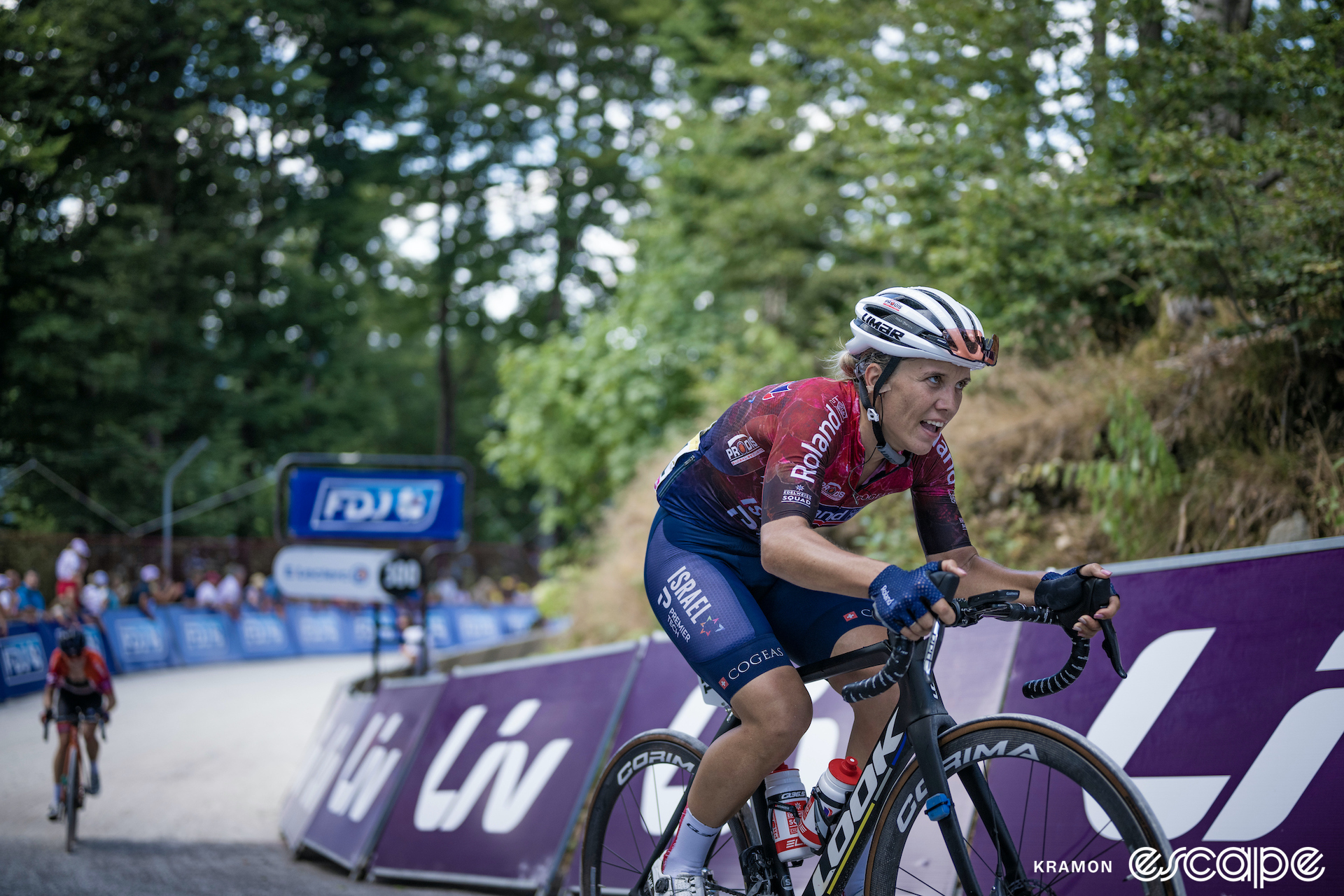
When asked what sort of rider she sees herself as, Dronova first mentions time-trialling. Indeed, she was crowned Russian champion in 2021. But it’s clear from her results thus far – namely a bunch of top-10 finishes on a range of terrain – that Dronova is a strong all-rounder, and one who can hold her own on the climbs.
“Yeah, but it's not all climbs,” she says with a chuckle. “It's on the three-category, sometimes it's two also but it's not one and higher. Because my weight it's really more than climbers.”
From Klimov’s perspective, Dronova is still very much evolving as a rider. In fact, when asked to define her strengths, he admits he’s not entirely sure.
“It's a nice question,” he says with a laugh. “She's been in an altitude training camp last one month, now she lose a lot of weight. It's a nice question for us! Yesterday, we discussed about 'which kind of rider now?' because she lose many kilo. She lose power [in the] sprint, but I hope she gets more in the climb.
“Now she looks more like Classics riders, but we will see in which way we can develop more.”
Coming into the Tour this week, Dronova hadn’t raced since the Ruta del Sol finished in early June. That was the most successful race of her career. She was fastest in an uphill sprint to win the opening stage, and then, in the leader’s jersey, she won alone on the long uphill finish on stage 2.
She finished second then third the next two days, ensuring she went into the final stage with the overall lead. A mechanical issue on that final stage saw her lose a bunch of time and drop to third overall, but she says she was still happy with her race.
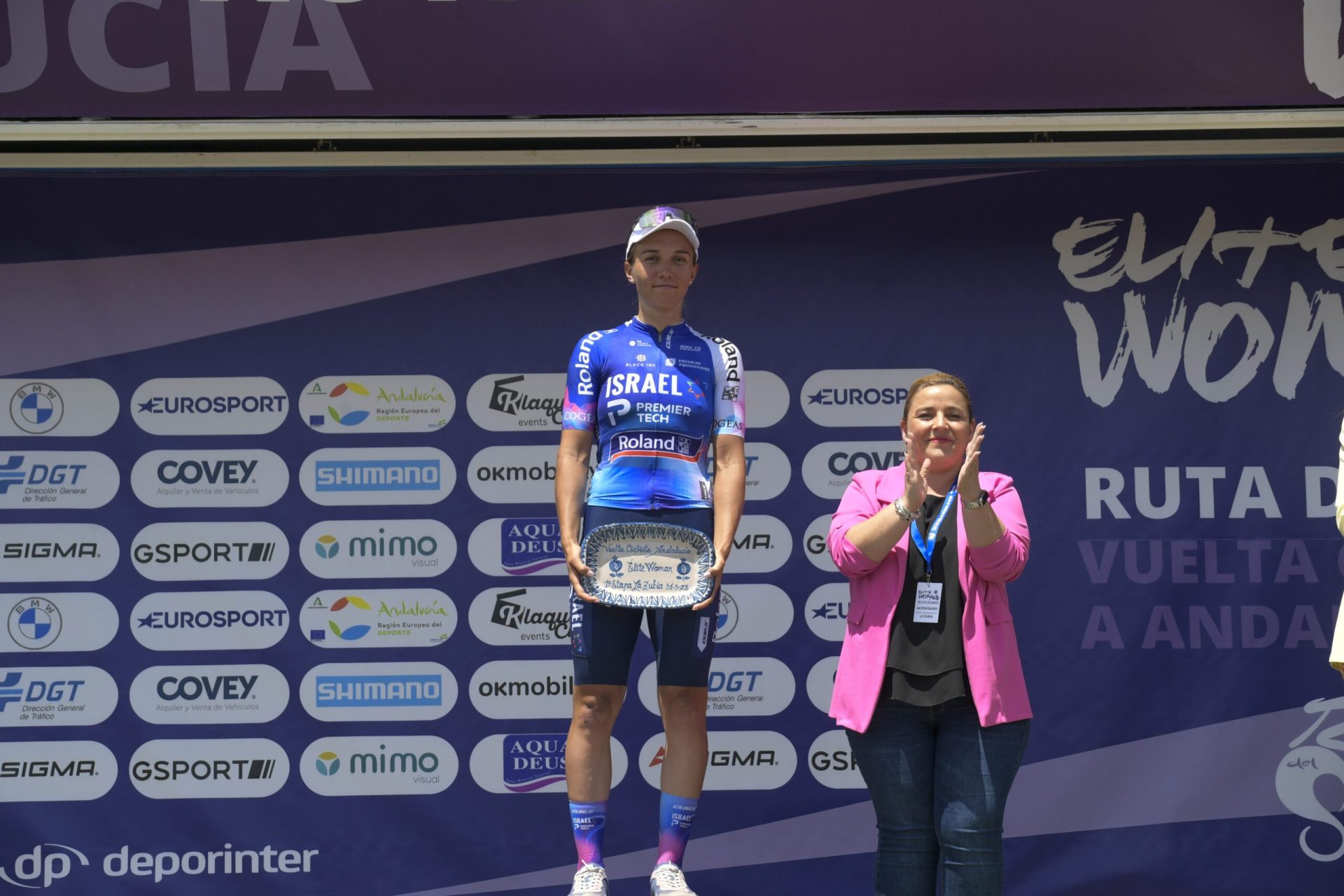
After a packed period of racing in Spain in May and early June, Dronova took some time off then headed to altitude to prepare for the Tour. Returning to racing on stage 1 of the Tour this week, she noticed her lack of recent racing.
“Yesterday for me was a good day, I think,” she says on the morning of stage 2. “But now after two months without a race, I'm not feeling good; [not] my normal speed.”
Still, she appears to have settled in nicely, finishing seventh on the opening stage in the group of favourites, and 10th in the same group on stage 2. She’s hoping for more of the same in the days ahead.
“I will try to get a good place for every stage ... but without the queen stage, because it's not my place,” she says with a smile, referencing the race’s rendezvous with the Col du Tourmalet on stage 7. Interestingly, her sports director has a slightly different view.
“With Tamara we will try to fight for all stage, including Tourmalet,” Klimov says at the start of stage 2. “But stage like yesterday, like today, tomorrow, we'll try with Tamara to get the stage win. It's our main goal for this race.”
In less than three seasons, Tamara Dronova has gone from a track racer with almost no road racing experience, to a regular inside the top 10 in the biggest road races in the world, all across a range of different terrain.
Who knows what else she’s capable of. But, if her recent trajectory and Tour so far are anything to go by, we might be about to find out.
Did we do a good job with this story?

